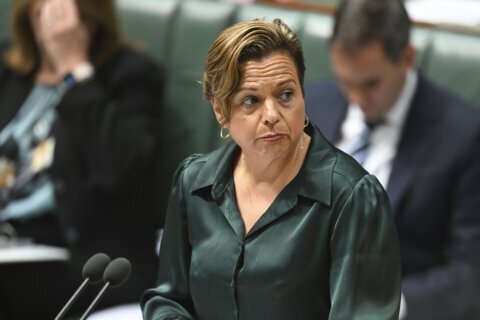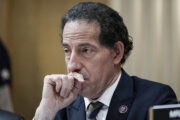WELLINGTON, New Zealand (AP) — Chinese Premier Li Qiang met with New Zealand Prime Minister Christopher Luxon on Thursday in Wellington, where the two leaders played up the ability of “good friends” to respectfully disagree — while publicly diverging on little.
Li, China’s No. 2 official, is the first Chinese premier to visit New Zealand since a 2017 visit by Li Keqiang. He will also travel to Australia and Malaysia, China’s Foreign Ministry said this week. The trip coincides with easing tensions between Australia and China that have vexed the relationship in recent years.
After their meeting, Luxon and Li announced new agreements on trade, environmental and other issues.
China is the South Pacific nation’s largest trading partner, with two-way trade worth 36 billion New Zealand dollars ($22 billion). They signed a bilateral free trade agreement in 2008 — China’s first with an Organization for Cooperation and Development nation — and Li’s visit marked the 10th anniversary of a pledge to bolster ties signed in 2014 when China’s President Xi Jinping last visited Wellington.
New Zealand has long sought to diversify its export market away from dependence on China, but Luxon on Thursday hailed Li’s visit as a renewed opportunity for business, adding there were “huge” opportunities for more trade, citing China’s “rapidly rising middle class.”
Wellington in recent years has struck a more moderate tone with Beijing on security matters than many of its Western partners — including the U.S., U.K., Australia and Canada — and has sought a consistent foreign policy approach to Beijing that spans political parties and administrations.
That has often prompted milder remarks from New Zealand on Chinese human rights or security issues than its allies, but Luxon said Thursday the countries’ “longstanding” relationship permitted disagreement.
“The ability to be able to talk very directly and very upfront about issues that we might disagree on, have differences of opinions around, is actually a very good thing,” Luxon said. “It might be uncomfortable at times for both parties, but at least we’re actually able to do that.”
Li, too, affirmed the two countries’ willingness to diverge.
“It’s natural that we don’t always agree with each other on everything,” he told reporters. “But I think differences should not become a chasm that blocks our exchanges and communication. Instead, it should be a driving force for us to learn from each other and help each other develop.”
The countries were “good friends,” Li added.
Luxon, when asked by reporters how much of his meeting with Li had covered common ground and how much concerned the countries’ differences, replied: “Probably 50-50.”
Luxon said he told the Chinese premier he would have “no tolerance” for foreign interference in New Zealand’s affairs. Luxon said Li had raised concern about Wellington’s possible participation in a trilateral security pact with Australia, the United States and Britain known as AUKUS.
Li arrived in New Zealand’s capital to a mostly warm public welcome, with supporters who lined the streets in the capital far outnumbering protesters denouncing China’s human rights record.
Asked by reporters whether China was a good citizen in the global community, Luxon stopped short.
“It’s an important one,” he said.
Li’s upcoming visit to Canberra will cap two years of efforts to rebuild China-Australia relations after a period of intense challenges, including over regional security and human rights.
It will mark the first visit there by a Chinese premier in seven years, and follows Albanese’s trip to Beijing last November and Chinese Foreign Minister Wang Yi’s trip to Australia and New Zealand in March. China has been steadily rolling back tariffs and other restrictions it placed on imports from Australia as relations soured in 2020.
China opposes to Australia’s plan to acquire nuclear-powered submarines with assistance from the U.S. and the U.K., which it sees as part of American efforts to constrain China by deepening military ties with other countries in the region.
But with Australia unlikely to bend on that issue, Li’s focus will likely be on moving past their differences and deepening economic ties. Australia, which has a trade surplus with China, is a major supplier of iron ore and other minerals to the world’s second-largest economy.
___
Associated Press journalist Ken Moritsugu in Beijing contributed to this report.
Copyright © 2024 The Associated Press. All rights reserved. This material may not be published, broadcast, written or redistributed.







